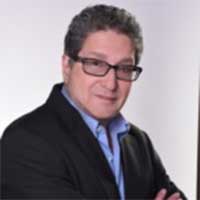Petro and Antioquia

By: Pedro Corzo - 04/07/2024
Guest columnist.Share:
My recent trip to Colombia allowed me to appreciate the little sympathy that Antioqueños profess towards their president. In reality, he is not a man loved or respected by the majority in that department, nor is the previous mayor of Medellín, Daniel Quintero, who they say has presidential ambitions that, if realized, they believe, would sink the country irretrievably.
Quintero, according to my interlocutors, was a disaster for the city of eternal spring. According to them, in the four years of his mandate, hunger grew, there was more poverty, violence and less education. The corruption was more than notorious, to the point that assets that they acquired illegally are being confiscated from several of the former municipal officials.
I do not doubt that in other regions of the country the president has supporters, but the Colombians I know, the vast majority of whom are from humble origins, reject Petro and proudly acknowledge being on the right and repudiating the political left in all its forms. They were all so emphatic that I told a relative: “I think you are the only people in America who have no qualms about admitting to being on the right.”
I talked to dozens of people. Only one, and timidly, defended the president's management, while the majority expressed being upset, among other situations because President Gustavo Petro did not provide the funds to finish a vital communication route that is only a few meters away.
The irritation is so great that many citizens are proposing to raise funds from the community to cover the expenses required for road construction, a proposal that testifies to the strong convictions of the Paisas.
It is true that for many Colombians, President Petro does not have the necessary time – the next elections are in 2026 – to make the structural changes that would be required to turn the country around. However, he has plenty of opportunities to produce legislation that would greatly favor his supporters, in addition to creating conditions to be replaced in the Presidency by a faithful follower.
I am not in favor of underestimating adversaries, much less enemies. Politicians opposed to democracy have numerous resources to achieve their purposes; among others, faithful international allies and an undeniable ability to corrupt and win allies where their opponents never imagine.
The president wastes no time and tries to cover the route that suits his purposes. An example was – I read it in a local newspaper – the stratagem he executed to replace the rector of the National University, the largest higher education center in the country, Jose Ismael Peña, with his candidate Leopoldo Munera, maneuvers that both Fidel Castro and Hugo Chávez was executed in the highest educational centers of their respective countries, because for these characters it is essential to have absolute control of public and also private management.
On the other hand, the president is immersed in projects that seek to draw a new country. The Health and Pension reforms can be perceived as innovations in two important fields of society. However, they must be carefully analyzed because in any section a tiger may be hidden that changes everything.
What most attracts the attention of any observer, with the exception of the constitutional reform, which we will address shortly, is the Statutory Law of Education, with a motto that is close to the refoundational ambitions so close to Hugo Chávez, Evo Morales and Rafael Correa: “It is time to transform education to transform history.”
Despite the announcement of the spending cuts, the president will not give up patronage politics and will continue with subsidies, a fundamental activity to continue having the support of those most in need.
However, above any proposal, the most important for the ruler is to initiate a process that concludes with the call for a Constituent Assembly, which I dare to speculate would be original, as if the Republic and the country were being formed from of the Government of Gustavo Petro.
Colombians are very close to the Venezuelan catastrophe and, although no people learns from the experience of others, they should consider thoroughly finding out what their president is proposing, who, according to his critics, seeks to perpetuate himself in power and ignore proposals that correspond to his agenda. otherwise undemocratic.
«The opinions published herein are the sole responsibility of its author».